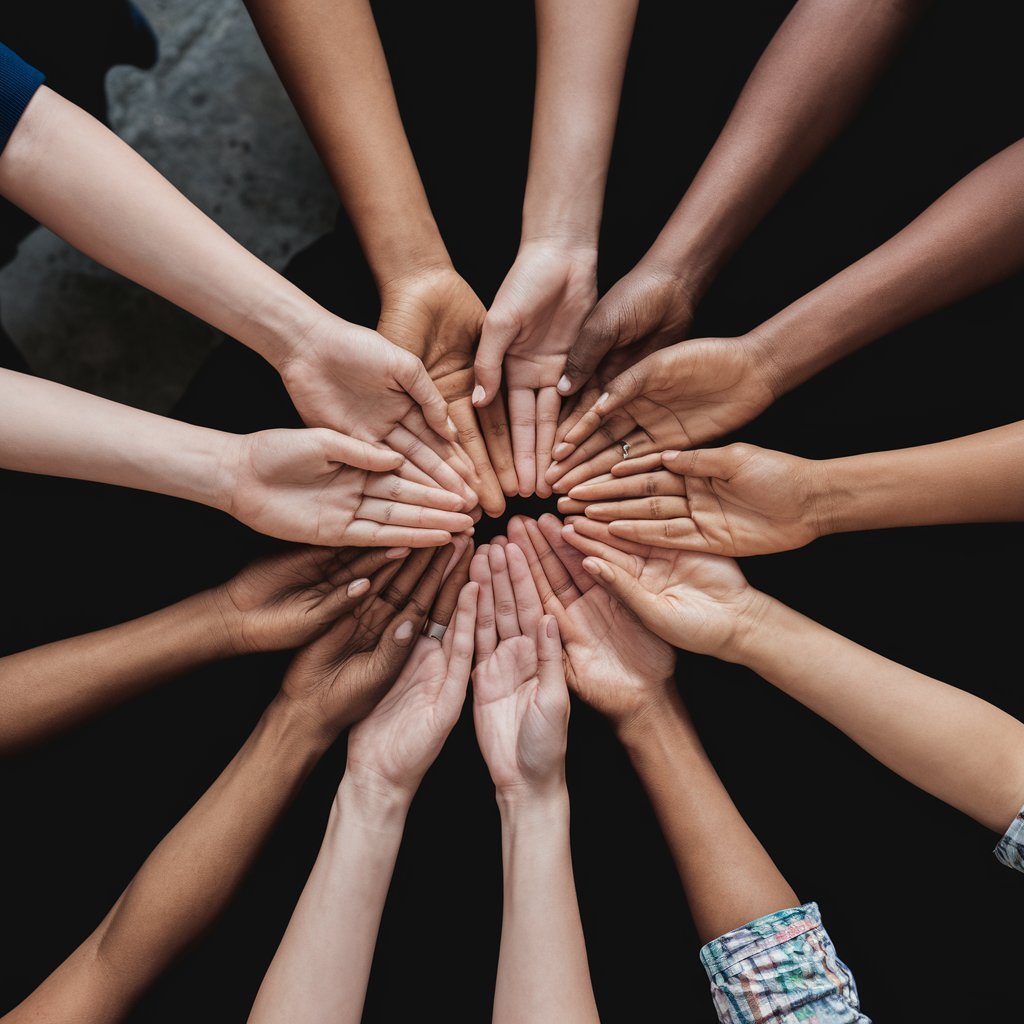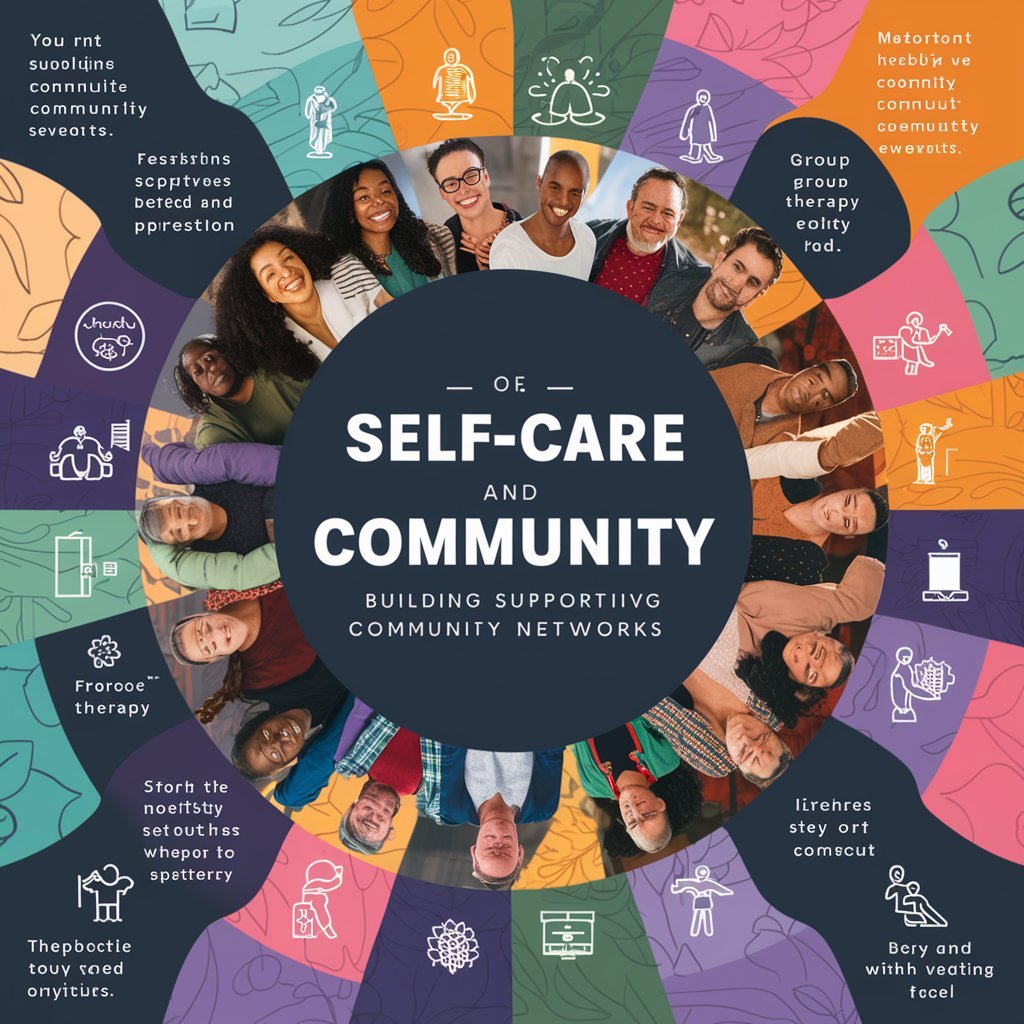Self-Care and Community: Building Supportive Networks
Hey there, my young and curious friends of 2024! It’s your favorite self-care explorer, Nita Sharda, here to take you on an exciting journey into the world of self-care and community. Now, I know what you might be thinking – “Self-care and community? Aren’t those just fancy words for taking care of yourself and being nice to others?” But trust me, there’s so much more to these concepts than meets the eye!
Today, we’re going to put on our explorer hats and discover what self-care and community are all about, and how they can help us build supportive networks that can help us thrive in all areas of our lives. But before we dive in, let me make one thing clear – this is not about putting anyone on a strict regimen or making them feel like they need to be perfect. It’s simply about empowering you with the knowledge and tools to take care of yourself and connect with others in meaningful ways.
So, are you ready to join me on this self-care and community adventure? Let’s go!
What is Self-Care?
First things first, let’s talk about what self-care actually is. Self-care is the practice of taking care of ourselves – physically, mentally, emotionally, and spiritually. It’s about doing things that make us feel good, help us recharge, and support our overall wellbeing.
Self-care can look different for everyone, but some common examples include:
- Getting enough sleep and rest
- Eating nutritious foods that fuel our bodies
- Exercising and moving our bodies in ways that feel good
- Taking breaks and doing things we enjoy, like reading, playing, or creating art
- Practicing relaxation techniques like deep breathing or meditation
- Expressing our feelings and needs in healthy ways
- Setting boundaries and saying no when we need to
The key to self-care is listening to our bodies and minds, and doing what feels right for us in the moment. It’s not about being selfish or indulgent, but rather about taking responsibility for our own wellbeing so that we can show up as our best selves in all areas of our lives.
Why is Self-Care Important?
So, why is self-care so important, especially for young people like you? Here are a few key reasons:
It Helps Us Manage Stress and Anxiety
Let’s face it – life can be stressful sometimes, even for kids. Between school, extracurricular activities, family responsibilities, and social pressures, it’s easy to feel overwhelmed and anxious at times.
Self-care practices can help us manage stress and anxiety by giving us tools to calm our minds and bodies, and helping us build resilience in the face of challenges. When we take care of ourselves regularly, we’re better equipped to handle the ups and downs of life with grace and ease.
It Supports Our Physical Health
Taking care of our physical health is an important part of self-care. When we eat nutritious foods, get enough sleep and exercise, and practice good hygiene, we’re giving our bodies the fuel and support they need to function at their best.
This is especially important for young people like you, whose bodies and brains are still developing. By establishing healthy habits early on, you’re setting yourself up for a lifetime of physical health and wellbeing.
It Boosts Our Mood and Self-Esteem
Self-care practices can also have a big impact on our mood and self-esteem. When we do things that make us feel good and take care of ourselves, we’re sending a message to ourselves that we matter and that we’re worthy of love and care.
This can be especially important for young people who are still figuring out who they are and where they fit in the world. By practicing self-care regularly, you’re building a strong foundation of self-love and self-respect that can carry you through even the toughest times.
What is Community?
Now that we’ve talked about self-care, let’s explore the concept of community. Community refers to the people and groups we surround ourselves with – our friends, family, classmates, neighbors, and other social networks.
Community is important because it provides us with a sense of belonging, support, and connection. When we feel like we’re part of a community, we know that we’re not alone and that there are people who care about us and have our backs.
Some examples of communities that young people like you might be part of include:
- Your family and extended family
- Your school and classmates
- Sports teams or clubs you’re involved in
- Religious or cultural groups you belong to
- Online communities or social media networks you’re part of
The key to building strong communities is to actively participate, contribute, and support others. This means showing up for others when they need us, being kind and respectful, and working together towards common goals.
Why is Community Important?
So, why is community so important, especially for young people like you? Here are a few key reasons:
It Provides Support and Encouragement
When we’re part of a supportive community, we have people to turn to when we need help, advice, or encouragement. Whether we’re struggling with a tough homework assignment, dealing with a friendship conflict, or just having a bad day, knowing that we have people who care about us and are there for us can make all the difference.
This is especially important for young people who are still learning and growing, and who may not always have the skills or resources to handle challenges on their own. By being part of a supportive community, you have a safety net to fall back on when things get tough.
It Helps Us Learn and Grow
Being part of a community also provides opportunities for learning and growth. When we interact with people who have different backgrounds, experiences, and perspectives than us, we have the chance to expand our own knowledge and understanding of the world.
This is especially important for young people who are still developing their identities and worldviews. By being part of diverse communities, you have the chance to learn from others, challenge your own assumptions, and grow in ways you never thought possible.
It Gives Us a Sense of Purpose and Belonging
Finally, being part of a community gives us a sense of purpose and belonging. When we feel like we’re part of something bigger than ourselves, and that we have a role to play in making our communities better, we feel more motivated and fulfilled.
This is especially important for young people who are still figuring out their place in the world. By being part of communities that align with your values and interests, you have the chance to make a positive impact and find meaning and purpose in your life.
Building Supportive Networks through Self-Care and Community
So, how can we bring self-care and community together to build supportive networks that help us thrive? Here are a few key strategies:
Practice Self-Care Regularly
The first step in building supportive networks is to practice self-care regularly. When we take care of ourselves and prioritize our own wellbeing, we’re better equipped to show up for others and contribute to our communities in meaningful ways.
This means making time for self-care practices that nourish our bodies, minds, and spirits, and being intentional about creating a lifestyle that supports our overall health and happiness.
Seek Out Supportive Communities
The next step is to actively seek out communities that align with our values, interests, and goals. This might mean joining a club or team at school, volunteering for a cause we care about, or connecting with others who share our hobbies or passions.
When we surround ourselves with people who support and encourage us, and who share our vision for a better world, we feel more motivated and inspired to make a positive impact.
Cultivate Authentic Relationships
Building supportive networks also means cultivating authentic relationships with others. This means being open, honest, and vulnerable in our interactions, and creating spaces where we can share our thoughts, feelings, and experiences without fear of judgment or rejection.
It also means being a good listener and showing up for others when they need us. By building strong, trusting relationships with the people in our communities, we create a web of support that can carry us through even the toughest times.
Give Back and Pay It Forward
Finally, building supportive networks means giving back and paying it forward. When we’ve received support and encouragement from others, it’s important to turn around and offer the same to those who may be struggling or in need.
This might mean volunteering our time or resources to help others, offering a listening ear or a helping hand to a friend in need, or simply spreading kindness and positivity wherever we go.
By creating a culture of generosity and compassion in our communities, we build a world where everyone feels supported, valued, and loved.

Putting It All Together
Whew, we covered a lot of ground today! But I hope this gives you a better understanding of what self-care and community are all about, and how they can help us build supportive networks that help us thrive.
Remember, self-care and community building are lifelong practices that require intention, effort, and commitment. But the rewards – a greater sense of wellbeing, connection, and purpose – are well worth it.













1 Comment